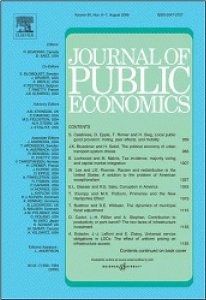
Hummel, A. and Ziesemer, V. (2023). Food subsidies in general equilibrium Journal of Public Economics, 222:.
-
Affiliated author
-
Publication year2023
-
JournalJournal of Public Economics
The Atkinson-Stiglitz theorem on uniform consumption taxation breaks down if prices are endogenous. This paper investigates the implications for optimal food subsidies in China. To do so, we build a general equilibrium model where low-skilled workers have a comparative advantage in the production of food. Food subsidies raise the relative demand for low-skilled workers, which reduces the skill premium and indirectly redistributes income from high-skilled to low-skilled workers. The optimal food subsidy balances these distributional gains against the costs of distorting consumption decisions. We calibrate our model to match key moments from the Chinese economy, including sectoral production and spending patterns that we obtain from micro-level survey data. Our results suggest that general equilibrium effects rationalize only very modest food subsidies that generate tiny welfare gains.